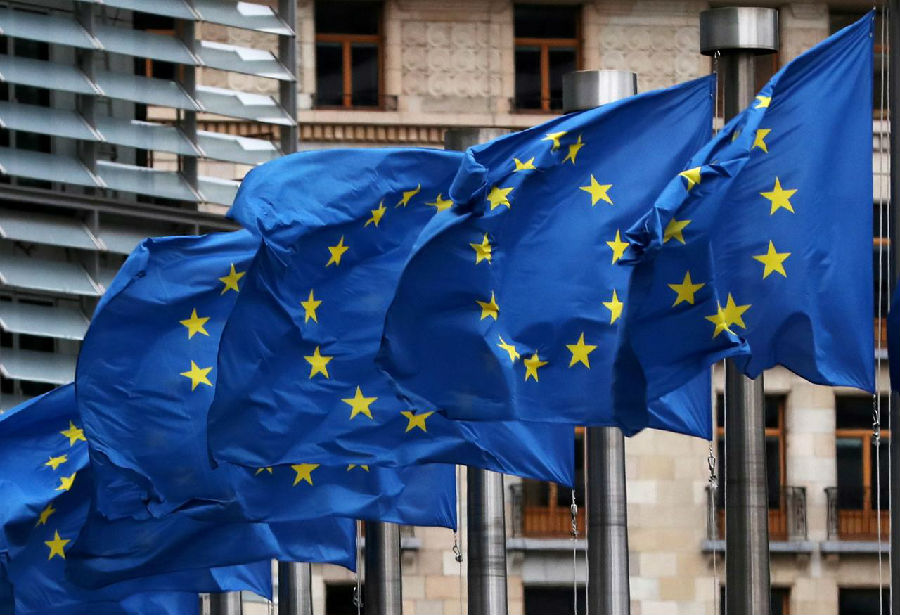Some members have long pledged a tax on financial transactions.
一些成員國(guó)長(zhǎng)期以來(lái)一直承諾對(duì)金融交易征稅。
But as James Tobin, its intellectual godfather, supposedly said, the levy is like the Loch Ness Monster:
但正如其知識(shí)教父詹姆士·托賓所說(shuō),征稅就像是尼斯湖水怪:
the idea occasionally pops up then disappears for years.
這個(gè)想法偶爾會(huì)冒出來(lái),然后又消失多年。
National vetoes might make taxing foreigners look attractive. Leaders said they would try to implement two such levies by 2023:
國(guó)家否決權(quán)可能會(huì)讓向外國(guó)人征稅看起來(lái)更有吸引力。領(lǐng)導(dǎo)人們表示,他們將努力在2023年前實(shí)施兩項(xiàng)這樣的稅收:
a "carbon border-adjustment mechanism" (a tariff on climate-unfriendly imports), which could raise 5bn-14bn euros a year,
一個(gè)是“碳排放邊境邊界調(diào)整機(jī)制”(對(duì)氣候不友好進(jìn)口商品征收關(guān)稅),每年能籌到50億至140億歐元,
and a less lucrative levy on (mainly American) tech firms. Yet these face problems too.
一個(gè)是對(duì)(主要是美國(guó)的)科技公司征收利潤(rùn)較少的稅。然而,這些也面臨著問(wèn)題。
The border mechanism is devilish to design and will be challenged at the World Trade Organisation.
邊境機(jī)制的設(shè)計(jì)非常棘手,且將受到世界貿(mào)易組織的挑戰(zhàn)。
America's opposition to a digital tax has stalled a parallel process at the OECD, and given pause to governments trying to impose national versions.
美國(guó)反對(duì)數(shù)字稅阻礙了經(jīng)濟(jì)合作與發(fā)展組織的行進(jìn)程,也讓各國(guó)政府暫停了實(shí)施國(guó)家版本的努力。

Contributions from members based on national income have long made up the bulk of the EU's budget.
長(zhǎng)久以來(lái),成員國(guó)基于國(guó)民收入的貢獻(xiàn)一直是歐盟預(yù)算的主要組成部分。
Every seven years countries grapple over minor adjustments to it; the summits are bruising, but governments retain control.
每隔七年,各國(guó)就會(huì)為一些小的調(diào)整而爭(zhēng)吵不休;峰會(huì)爭(zhēng)吵激烈,但政府依舊掌握控制權(quán)。
Introducing fresh own resources would jolt them out of such zero-sum thinking,
引入新的自有資源將讓他們跳出這種零和思維,
says Valerie Hayer, a French member of the European Parliament, and give heft to common priorities, such as climate.
歐洲議會(huì)的一名法國(guó)成員Valerie Hayer說(shuō)到,并重視共同優(yōu)先處理問(wèn)題,如氣候。
The parliament, which must approve last week's deal,
議會(huì)必須批準(zhǔn)上周的協(xié)議,
will seek to ensure that governments' vows on own resources are not "empty", she adds. Yet it cannot force their hands.
并將尋求確保政府對(duì)自有資源的承諾不是“空談”,她補(bǔ)充到。然而,議會(huì)不能強(qiáng)迫他們采取行動(dòng)。
If the own-resources discussion flops, countries could simply pay more into the next budget to repay the recovery-fund debt.
如果自有資源談?wù)撌。敲锤鲊?guó)只需在下一項(xiàng)預(yù)算中投入更多資金,以償還復(fù)蘇基金的債務(wù)。
But history shows that governments under fiscal pressure prefer to cut the EU's spending, says Ms Rubio;
但歷史表明,處于財(cái)政壓力下的政府更愿意削減歐盟的支出,Rubio說(shuō)到;
common endeavours such as research were slashed to preserve the recovery fund last week.
上周,為了保存復(fù)蘇基金,研究等共同努力被大幅削減。
Still, a lot can happen before 2028. For the EU to borrow and redistribute hundreds of billions of euros would have seemed unimaginable a year ago.
不過(guò),2028年之前還有很多事情都可能發(fā)生。對(duì)于歐盟來(lái)說(shuō),借款和再分配數(shù)千億歐元在一年前似乎是不可想象的。
The topic of own resources "was never sexy", says Mr Monti. "Now it is beginning to become so."
Monti表示,自有資源的話題“從來(lái)都不吸引人”。“現(xiàn)在情況開始變得如此。”
譯文由可可原創(chuàng),僅供學(xué)習(xí)交流使用,未經(jīng)許可請(qǐng)勿轉(zhuǎn)載。











